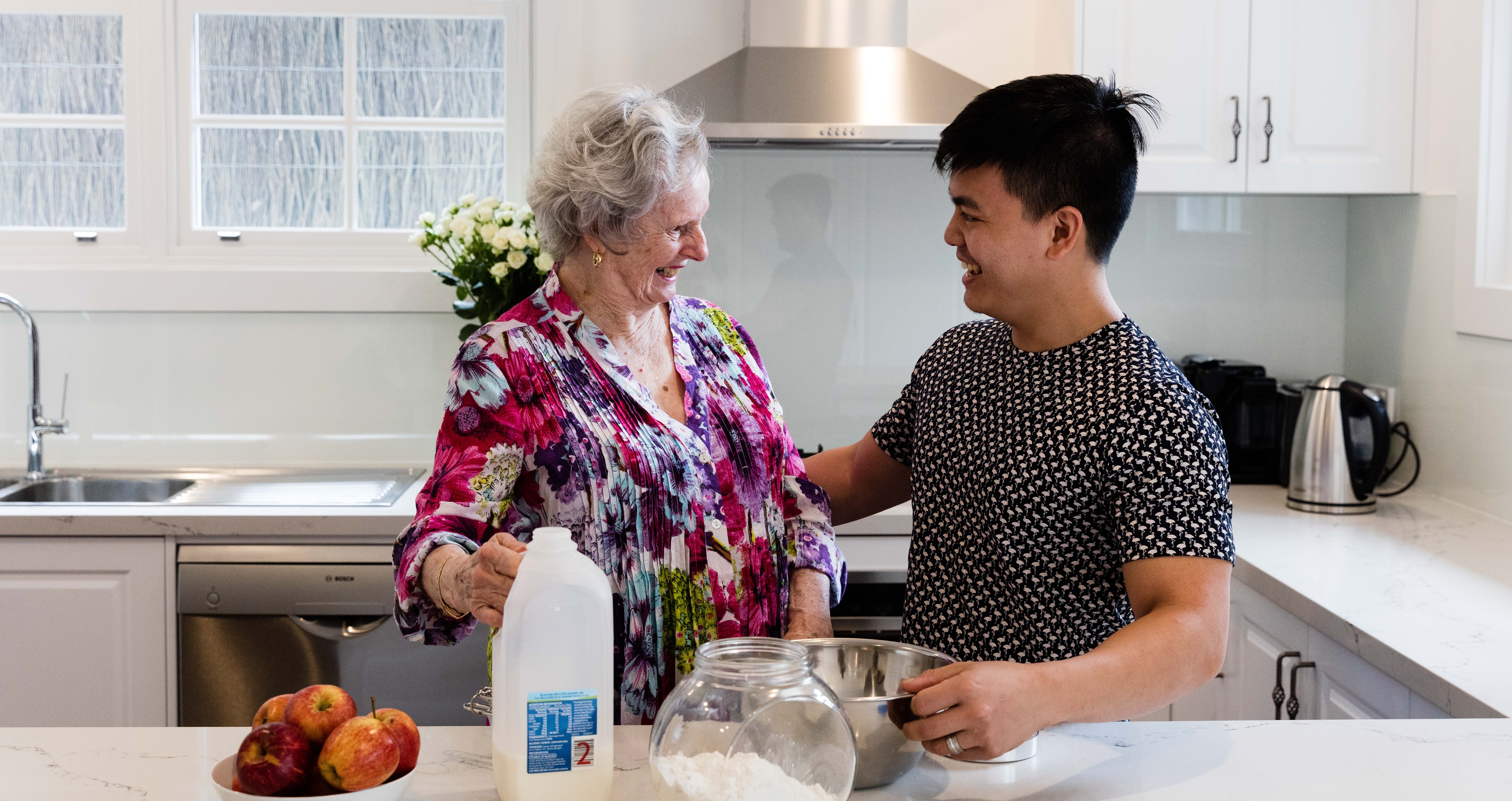A young onset dementia diagnosis can be extremely overwhelming. For many people, it can feel like they’ve had their whole life planned, and that’s now been taken away. But it’s important to remember that people with young onset dementia can still lead full and rewarding lives. To do that, it’s important to have the right support services in place to help you through. Here’s how you can provide support to someone with early onset dementia.
What is young onset dementia?
Dementia is a condition that affects a person’s cognitive abilities over time. There are different types of dementia, and most commonly it affects people over the age of 65. In cases where a person in their 30s, 40s or 50s exhibits dementia symptoms, this is known as ‘young onset dementia’.
Symptoms can include memory loss, difficulty speaking, disorientation, confusion, inability to concentrate and other personality changes. Everybody will experience the condition differently, and there are several supports available.
How does the condition progress?
Unfortunately, there is no cure for dementia, and it isn’t reversible. This means that a person’s condition will worsen over time, so carers and family members need to be flexible and adaptable. It’s often difficult to diagnose young onset dementia, and its causes are varied. Over time, a person’s cognitive abilities will worsen and symptoms are likely to increase. This is why the right support is essential for someone living with early onset dementia.
Support and care for people with young onset dementia
Below are some helpful tips for supporting loved ones with an early dementia diagnosis.
Helping to plan for the future
As a person’s condition progresses, their decision-making abilities will be affected. That’s why it’s important to plan for the future quite soon following a diagnosis. This ensures you have as much input as possible into your support and care. Most crucial are financial and legal matters.
However, you should also start planning for your life ahead. It’s going to be a change of plans for most people, but you should still keep this process as positive as you can. Prepare your home to make daily tasks easier and safer. Also, the time might come to consider a move to permanent care. By exploring these options early, you have more say in how you live your life.
Seek tailored support services
While more is being learned about young onset dementia all the time, many social services are aimed at older people with dementia. Often, this means people with young onset dementia receive care in an aged care facility or similar. Group Homes Australia offers an alternative, with locations across NSW where people can live their best lives with tailored support on hand, as well as creating a community of like minded people.
Not only is it more comfortable to live in a house that feels like your home, but you can also access dedicated dementia support services tailored to your specific needs.
Ensure good nutrition and exercise
As a person’s dementia progresses, it will be more difficult to perform the physical duties they used to. This includes exercise, but it’s important to keep active for as long as you can. A decline in cognitive abilities can also affect a person’s nutrition choices, so try to ensure your loved one maintains a balanced and nutritious diet.
Maintain social engagement
People with young onset dementia are likely to experience feelings of isolation and withdraw from social situations. The best thing you can do is encourage people to get out into the community and spend time with friends and family. Maintaining these connections is crucial for a person’s well-being. It’s also important to make sure your loved ones are included in events, too, because they can still feel lonely in a crowd of people.
Accessing mental health support services
Finally, make sure you access all of the mental health services you need. Young-onset dementia can affect people psychologically, and they may require additional mental health support. In addition, family members and carers need to look after their well-being. Group Homes Australia offers several resources to assist the loved ones of a person living with dementia.
Need further support for a person living with young onset dementia?
Group Homes Australia offers a specialised alternative to traditional care services, giving more options to people living with young onset dementia. We understand that everybody’s journey is different, and we’re here to help. Whether you need permanent care, respite services or further advice about navigating this complex condition, contact Group Homes Australia today.






0 Comments